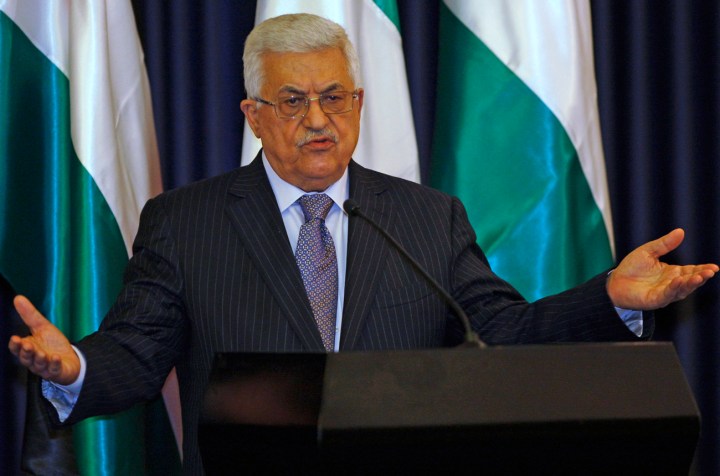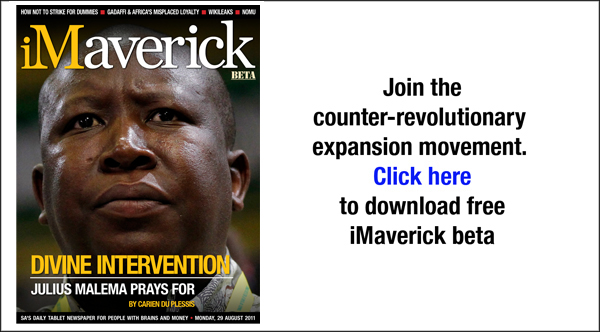Politics
Palestinians seek a state but the problem of statelessness is not easily solved

Next month, the President of the Palestinian Authority Mahmoud Abbas is widely expected to contact United Nations secretary general Ban ki Moon to request that the UN recognise Palestine as a full member state. While the move has some merits, not least dredging up attention to a peace process that has long stalled, it is vigorously opposed by Israel and the United States, and has also prompted heated debate within Palestinian circles. By KHADIJA PATEL.
There are up to 15 million people on earth who are stateless. Denied the basic rights afforded by a “nationality”, these people live in limbo between the reality of physically being and the official denial of their existence. Some analysts believe that more than half of the world’s stateless people are Palestinian. While wars, famine and natural disasters rage and then peter out, the Middle East conflict remains an indictment of the failure of modern politics. The crux of the conflict rests in the statelessness of the Palestinian people.
It is the statelessness of Palestinian Arabs that has been the indelible mark of modern politics. Power is contested in airstrikes, bomb blasts and sometimes even in niceties of negotiations but for millions left without formal recognition of their being, Palestinian statehood is a jarringly empty begging bowl. The conflict lives on in the people who live through its constructions of fear, suspicion and the barriers of a towering wall that separates one from the other. This is a conflict that has sown enmity and strife far beyond its epicentre in the beleaguered heart of the Middle East. The schizophrenia of the role of the United States in the conflict, first as a friend of Israel and then as an unremitting peace broker, has been a crucial tenet of contemporary American foreign policy. While the US has done its best to smooth over ruffled feathers in the Arab world, the statelessness of the Palestinians in the occupied territories and the diasporas, American relations with the Arab and Muslim people have been severely impacted. Yet, Palestinian people remain stateless and the obvious solution to Palestinian statelessness is, of course, the creation of a Palestinian state.
Next month, the President of the Palestinian Authority Mahmoud Abbas is widely expected to contact United Nations (UN) secretary general Ban ki Moon to request the UN recognise Palestine as a full member state. While the move has some merits, not least dredging up attention to a peace process that has long stalled, the move is vigorously opposed by Israel and the US, and has also prompted heated debate within Palestinian circles. The ostensible thrust of the success of Mahmoud Abbas’ statehood campaign is to alert the world to the continued plight of the Palestinian people, it is being hailed as a symbolic victory for the Palestinian people but the obstacles it faces, not least from within, exemplifies the challenges to achieving a lasting resolution.
Israel has begun is lobbying furiously against the Palestinians’ UN bid with the view that Palestinian ambitions of statehood are an elaborate attempt at isolating and delegitimising the Israeli state. Israel realises well the gravity of the impending vote and has set out to thwart burgeoning support for the statehood bid in the UN. The Israeli publication Haaretz reported on Sunday that a number of Israeli ministers had been despatched to destinations across Africa and Asia to dredge up opposition to the bid for Palestinian statehood. Israel realises well that a Palestinian bid for statehood may well be received very favourably by the UN. Sources within the Israeli foreign ministry, quoted by Haaretz, estimate that between 130 and 140 states out of a general assembly of 192 states will place their lot with the Palestinians.
Sources close to the Department of International Relations and Co-Operation (Dirco) indicate that South Africa will definitely be voting in favour of a Palestinian state, though the official stance is yet to revealed. Last week China announced that it would readily back the Palestinian bid next month. The Americans are conversely opposed to the idea. Last year, US President Barack Obama expressed hope that a Palestinian state could be admitted to the UN by the time world leaders gather for the 2011 General Assembly. That statement, US officials later clarified, was only an expression of hope, not a call for a vote on UN membership for the Palestinians. It is yet unclear how the European Union member states will vote. Haaretz reports thus far only five western countries have promised Israel a vote against recognition of a Palestinian state – the US, Germany, Italy, the Netherlands and the Czech Republic. The EU’s 27 member states are expected to be split between a large group that will support the Palestinians and two smaller groups that will abstain and oppose the resolution. Significantly however, the four European countries who will throw their lot with Israel are expected to request a change in the wording of the resolution that the Palestinians will propose. If the text is moderate and includes the possibility of returning to the negotiating table immediately following the vote at the UN, these four states may alter their opposition and abstain.
So, as Ban ki Moon receives the request from Abbas for the UN to admit a Palestinian seat in the general assembly, he will hand over the request for the Security Council to mull. If the 15-nation council approves the membership request, it is passed to the UN General Assembly for approval. A membership request needs a two-thirds majority, or 129 votes, for approval. By all estimations, the Palestinians will do exceedingly well in the General Assembly but due processes may not follow. The US is almost assuredly set to use its vetoing power to snuff any chance of Palestinian success in the Security Council.
In order to avoid an American veto, the Palestinians are widely expected to detour from the Security Council altogether and seek instead a vote at the General Assembly – even though kind of recognition earned through the General Assembly will be far weaker.
Dr. Mustafa Barghouti, Palestinian activist and politician who visited South Africa on a speaking tour with the Afro-MiddleEast Centre last week told iMaverick that he did not expect the statehood bid to be successful. “The US will veto it in the Security Council,” he predicts. Barghouti, a proponent of the statehood bid believes that even if the Palestinian bit is successful in the General Assembly, it will be a hollow victory. “Even if we win in the General Assembly it will not mean the state is there. It will mean better support for a state is there,” he says. While many Palestinian activists oppose the statehood bid for the compromises with Israel it will have to make if it is indeed successful, Barghouti is quick to defend the bid as a form of “resistance”. “We feel this is one step. It is an important step but it is part of diplomatic resistance, part of the larger resistance,” says Barghouti.
Other activists like Ali Abunimah writing in Al Jazeera take a markedly different view. “The PA’s push for recognition of a Palestinian state is the diplomatic counterpart to its much-touted “institution-building” and “economic development” efforts which are supposed to create the infrastructure for a future state….UN recognition of a Palestinian make-believe state would be no more meaningful than this fantasy ‘institution-building’, and could push Palestinians even further away from real liberation and self-determination,” Abunimah says.
Barghouti insists however that the statehood bid is essential to finding a way forward for the Palestinian people, “I think it is the Palestinian way of declaring to the world that all the negotiations have failed and the world community, especially ‘The Quartet’, (The Quartet are the United Nations, the United States, the European Union, and Russia all of whom are involved in mediating the peace process in the Israeli-Palestinian conflict) has failed to pressure Israel,” he says.
Another impediment to the PA’s statehood campaign is a legal opinion study by Guy Goodwin-Gill, a professor of international law at Oxford, who asserts that a successful bid is only set to exacerbate the problem of statelessness for Palestinian people in the diasporas. A successful bid will see UN representation of the Palestinian people shift from the global Palestinian Liberation Organisation – currently recognised as the “sole and legitimate representative” of all Palestinians around the world – to the Palestinian Authority, with a state based in the West Bank and Gaza. Goodwin-Gill argues that “the interests of the Palestinian people are at risk of prejudice and fragmentation”. Palestinians in the diaspora risk losing “their entitlement to equal representation … their ability to vocalise their views, to participate in matters of national governance, including the formation and political identity of the state, and to exercise the right of return”.
Associate Johns Hopkins professor Jakub Grygiel, in an essay, “The Power of Statelessness: the Withering Appeal of Governing” writes, “Statehood is no longer a goal. Many stateless groups do not aspire to have a state, for they are more capable of achieving their objectives without one. Instead of actively seeking statehood to address their weakness, as Zionist Jews did in an earlier phase of history, groups like the Palestinians now embrace their statelessness as a source of power”. The millions of stateless people around the world will disagree with any purported advantages of statelessness. For the Palestinian people, at least, statelessness is not likely be solved by a symbolic state. There will most assuredly be intense lobbying from Palestinians and Israelis as they now fight a tug of war for the loyalties of the international community, but for the people on the Palestinian street, be it Gaza, the West Bank, or the diaspora, the difference is certainly not discernable. DM
Read more:
- It’s time for Israel to give ground to a Palestinian state in The Sydney Morning Herald;
- Israel looks to influence text of PA statehood resolution in The Jerusalem Post;
- How Palestinian Authority’s UN “statehood” bid endangers Palestinian rights in The Electronic Intifada.
Photo: REUTERS






 Become an Insider
Become an Insider